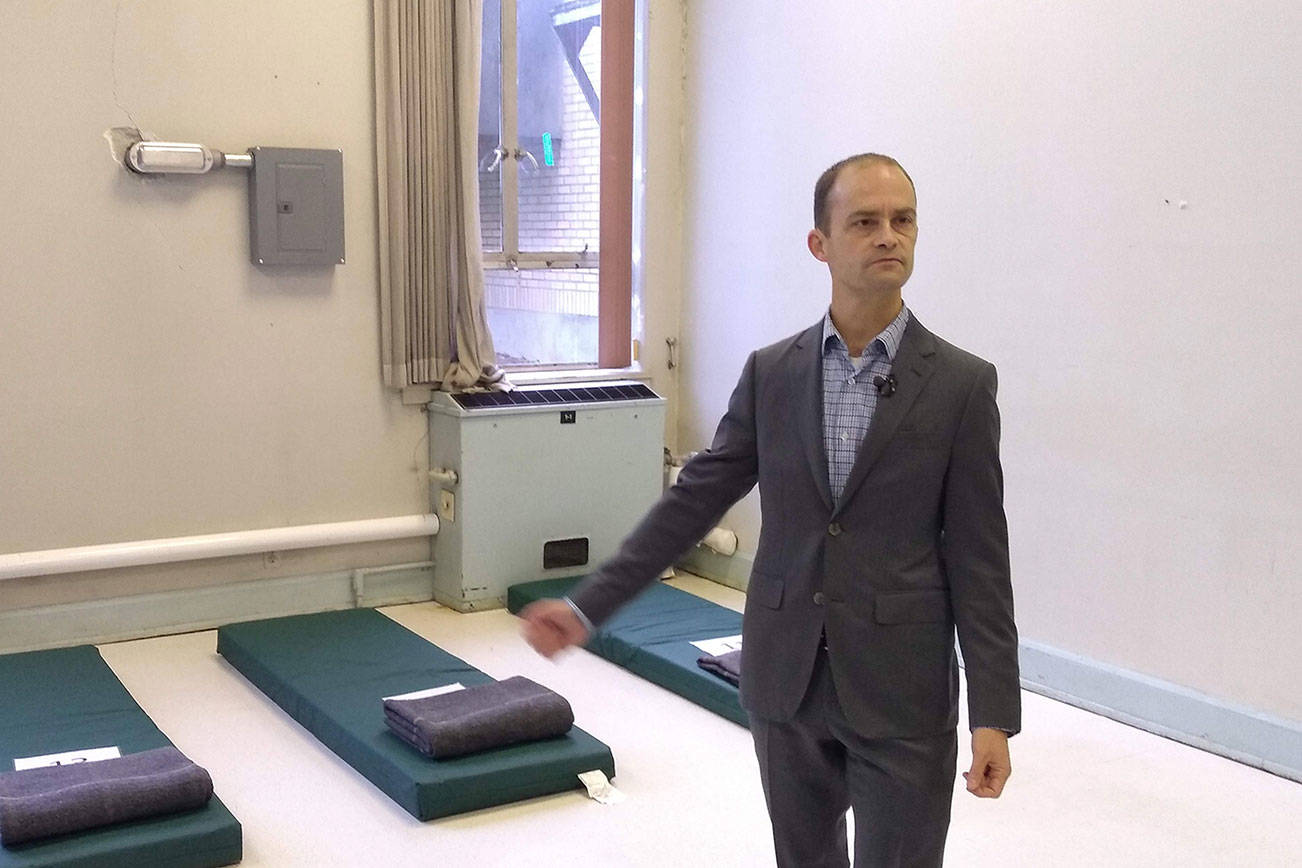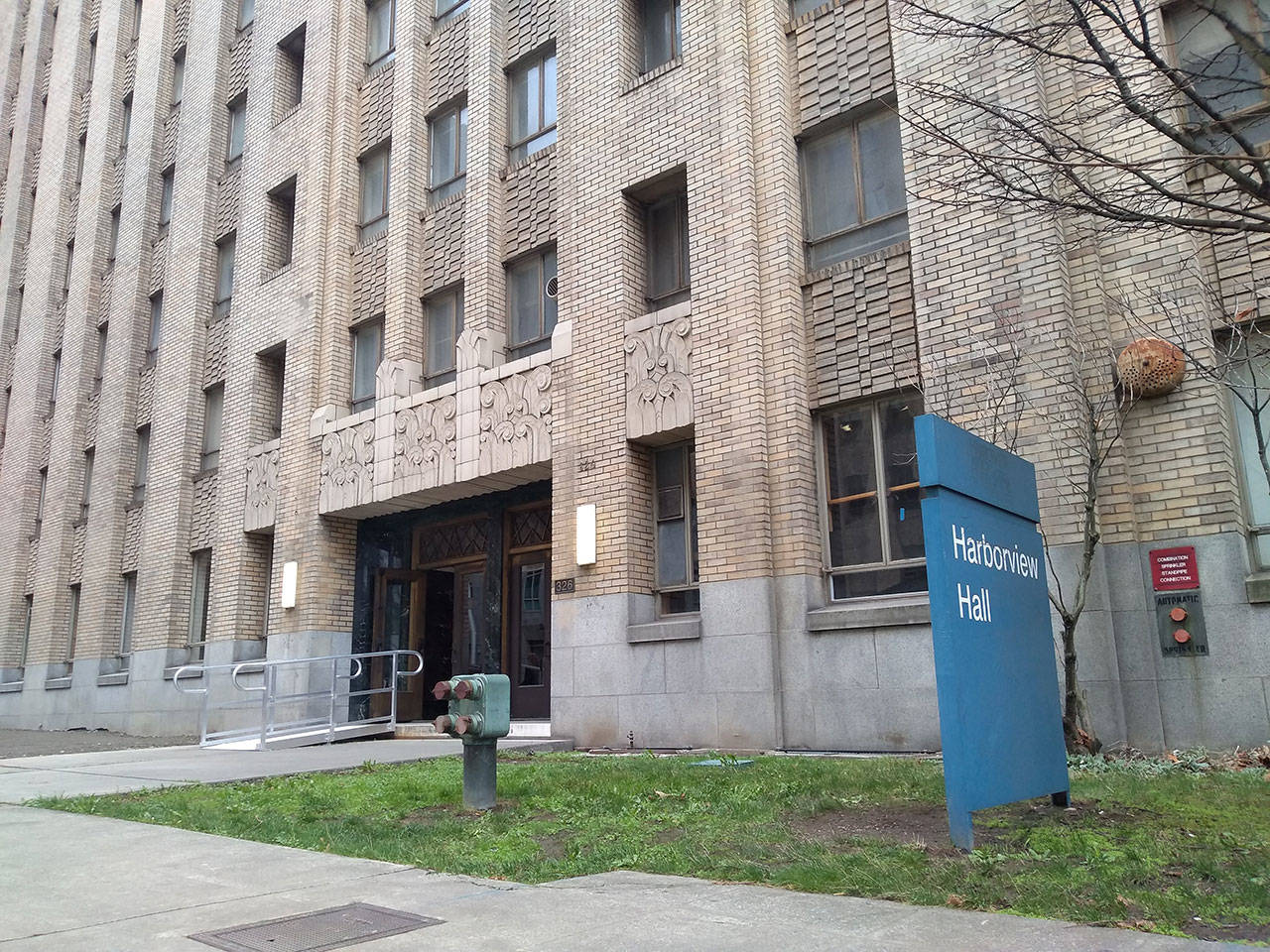A long-awaited homeless shelter in an unused building at Harborview Medical Center opened its doors on Dec. 21, more than two years after being approved by King County.
The shelter is being housed in Harborview Hall on the hospital’s medical campus on First Hill. The nine-story building had sat unused for nearly a decade, and required more than $2 million to upgrade its electrical, fire, and sewage systems, said King County Housing and Community Development manager Mike Ellerbrook.
The shelter will house up to 100 people. Real beds were scheduled to arrive within a week of its Dec. 21 opening. Until then, the shelter used sleeping pads on the floor. Guests at the shelter will have the option to reserve a bed for following nights to help cut down on time spent waiting outside the shelter each evening. The shelter provides all-gender housing, with a large room for men, a separate and smaller room for women with its own bathroom, and a third room that is ADA-accessible. Ellerbrook said couples housing is not provided, but the shelter could be modified if there is interest in a space for couples. Capt. Jonathan Harvey with the Salvation Army said pets will be allowed too.
The shelter relies on up to $900,000 annually to operate, and it will be run by the Salvation Army, a Christian outreach organization. Drug and alcohol use will not be permitted in the shelter, Harvey said, but people will not be turned away for substance use or “because of a religious affiliation.” Christian programs will also be an option, and participation will not be a requirement of the shelter, he said. The shelter will be open to guests from 7 p.m. to 7 a.m. and will serve as an office space and provide limited case-management services during the day. Guests can also store items in personal bins during the day. The shelter was originally anticipated to be open 24/7, but due to difficulties upgrading the facilities, that schedule was scaled back, according to the Capitol Hill Seattle Blog.
A press release from the county said it was examining plans and costs to expand the shelter to a 24/7 facility with case management and other services in 2019. “We’re very excited about the 24/7 shelter option as well,” Ellerbrook said on Thursday.
Alison Eisinger, executive director of the Seattle/King County Coalition on Homelessness, said opening the shelter was a step in the right direction for the county. The coalition is an advocacy group that pushes for housing in the county. “We are really pleased to see more good shelters opening, even though we know that what people need is housing,” she said. While 24/7 housing costs more, it is the gold standard of housing, she said. The county funding the shelter is a good sign, she said, even if it isn’t open around the clock. “I would say what we want for everybody is homes. I don’t have restricted access to my home between 7 a.m. and 7 p.m.,” she said.
Shelter news also broke on the Eastside this week as the Bellevue-based Congregations for the Homeless announced it was trying to acquire surplus King County land at 13620 SE Eastgate Way for a permanent men’s shelter. Bellevue has been looking for land to place a year-round shelter since 2014, and earlier this year, the Bellevue City Council approved permitting regulations, according to Congregations for the Homeless.
The King County Council approved $2 million for the shelter in the November budget. A current shelter in Bellevue will be open until 2022 and the Congregations for the Homeless hope to have the new shelter built and running by then.









